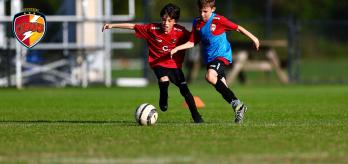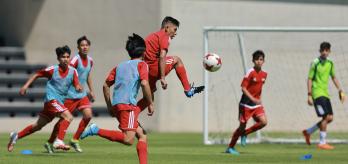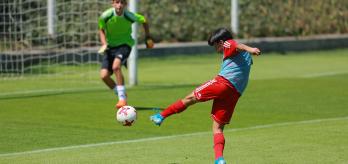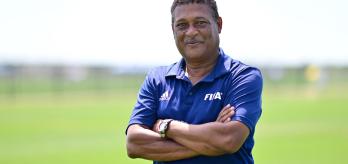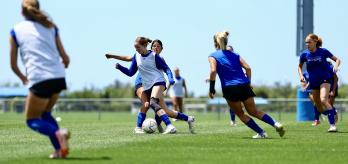The FIFA Training Centre recently spoke to Chargers’ Executive Director, Mike Keeney – a UEFA Pro Licence coach with experience on several continents – to discuss the uniqueness of US football, the overall methodology of Chargers SC, and how the club is embracing a future-focused approach centred on individual development and long-term growth.
KEY POINTS
- Football in the US has several unique characteristics and challenges, from its cultural differences to its vast landscape and extreme climates, all of which influence how the game is taught and played.
- For younger players, Chargers’ methodology centres on skill acquisition, decision-making and personal development.
- Chargers maintain a consistent methodology across their three Florida campuses, while still giving coaches the freedom to adapt to their players and environment.
UNIQUE CHARACTERISTICS OF FOOTBALL IN THE US
I hope that, when people here get to see the passion and the supporters – but also the fervour for the game – it will leave a lasting impact in the US.
Keeney explained that one of the unique aspects of football in the US today is that the sport is still relatively new in certain parts of the country. While it is one of the largest participant sports in the United States, it still lags behind more traditional and culturally embedded games such as baseball, basketball and American football.
"In some parts, there are just first-generation players,” Keeney began. “However, in other parts, like where I grew up in the San Francisco Bay Area, the league is over 100 years old. We have such a varying landscape in America where some people are several generations deep playing the game, while for others it is brand new. So, for US soccer, it's about trying to bridge that gap in certain areas but also elevating the level to compete on a global scale”.
He also mentioned that the American landscape and environment itself provides unique challenges domestically, particularly regarding the travel times required to get to a match, and the intense weather conditions in certain parts of the country. “The landscape of America is just so big and trying to cover that area is very hard,” Keeney said. “It's not uncommon for us to drive four-and-a-half hours, play a match and then drive four-and-a-half hours back”.
The Executive Director of Chargers admitted that Florida’s heat poses a unique challenge for his club and others faced with the same problem. Often, maintaining a high tempo during training and matches can prove to be much more difficult in the southern states of the US compared with other regions. This means that practice is primarily technically focused, with an emphasis on keeping the ball and improving decision-making skills.
“There's a reason why the teams in the southern United States are not playing end-to-end, high tempo games. It's often more than 34 degrees Celsius here, and humid too”, he noted. “So, it tends to be more of a technical game, with teams focusing on building up and capitalising on key moments. We want our teams to be very good on the ball, to keep possession and control the tempo of the game, but to do that, they have to be skilful and work on their decision-making.”
Potential impact of FIFA World Cup 2026
Keeney believes that the FIFA World Cup 2026™, which will be held in North America, will have a profound impact on the development of the game in the United States, similar to when the nation solely hosted the tournament back in 1994.
“If you remember in ‘94, Major League Soccer (MLS) had just started. Since then, the league has grown and grown, and you can see how big of an impact the World Cup had on that, being able to jump-start the league and attract global interest,” Keeney said excitedly. He feels as though the tournament, which takes place next summer, will allow people in the US to truly live the game. “I've been very fortunate. I've worked all over the world and seen how football has an impact on society. I hope that, when people here get to see the passion and the supporters – but also the fervour for the game – it will leave a lasting impact in the US.”
Additionally, with the World Cup 2026 being spread across 11 different cities in the United States alone (excluding Mexico and Canada), offering many opportunities to go and see games in person, Keeney feels as though it will inspire a new generation of football fans in the US.
“This next generation will be exposed to that passion. When it's on TV and there’s a huge time difference, people don't get that feeling, but when it's in your backyard, you're going to say, ‘Hey, there are thousands of people coming over to watch a single match’, and I think that'll be eye opening for a lot of American children.”
Methodology of Chargers
Having worked in his role at Chargers for a little over a year, Keeney praised the progressive methodology that has been implemented at the club, which focuses on helping players acquire core football skills and develop quality decision-making from a young age. This methodology has helped to produce players such as Philadelphia Union defender Nathan Harriel.
“We want to create players who are good at taking others on, but we also want them to recognise what kind of movement they can make to create a numerical superiority, a technical superiority, or even a physical superiority,” he explained.
“At a really young age, the ball is still a toy to them. Everybody wants to have it. Eventually, we can start to build them up by saying, ‘When you have the ball, this is what you want to do. This is how you dribble. This is how you turn. This is how you take players on. This is how you pass’, but it also takes a little time for players to recognise that”.
When asked what inspired the methodology at Chargers SC, Keeney drew on his own experiences in Europe, where players at the highest level would make unforced errors due to lacking a sound technical base.
“In my experience, I've coached players that were competing in UEFA Europa League qualifying matches, and some of the basic decisions that they made were not the right ones. They put themselves in more danger than they would have if they chose a different option – just because they'd always done the same thing”, he continued. “This is what they naturally do. I want players to recognise and assess their performance, even at the youngest age, and reflect on what they're doing so that they can make a better decision next time.”
Keeping a consistent methodology
Across Florida, Chargers have three campuses – Tampa, Lakewood Ranch and Clearwater. For Keeney, it is essential that every coach follows the club’s overarching methodology, while still being given freedom to operate in the way they see fit. One way that Chargers have aligned coaches is by appointing a campus director across the three branches and holding weekly coaching meetings.
“What we say to the coaches is, ‘These are targets that we want you to hit’. How they hit those targets and how they cover them is completely up to them”, he said. “We want the players to understand these topics and these objectives and be able to execute them on the pitch. There is accountability, but they're not being handed a booklet saying, ‘You must do this training activity.’”
Keeping parents/guardians onside
As a major developer of youth players across different areas of Florida, Chargers currently have close to 4,000 players in their ranks. Communicating with such a large number of parents or guardians is another unique challenge faced by a club like Chargers over in the United States. However, Keeney believes that managing expectations and leveraging technology are instrumental in doing so successfully.
“Parents see their child through a certain lens, and we have to manage their expectations,” he remarked. “We also have to give them ideas of what they need to work on.
“We do a lot through video. All the matches are recorded. Then, we're able to get video clips where we could highlight what went well or what needs to be improved, and give them an actual visual,” he said. “People's memory of what happened in a match is very selective, and we try to marry that up with data to show them. We’re trying to implement some of this new technology into what we're doing, especially in our more advanced programmes like our MLS NEXT programme from U-13 to U-19, and we can provide them with comparable data between the youth national teams or academies abroad and say, ‘This is what your son or daughter is up against domestically and globally.”
Keeney concluded the interview by offering an insightful message for players and parents/guardians. “Everybody has a dream of being a professional, and we want to support that. But we also want to give you the tools and keep your feet on the ground because, if that's your goal, it's a step-by-step process – not just a wish.”
Summary
- Chargers SC is shaping future players through a long-term, player-first approach, prioritising skill acquisition, decision-making and game intelligence over early results.
- The methodology of Chargers Soccer Club is tailored to the unique characteristics of football in the USA, balancing regional challenges and cultural expectations, with a consistent focus on long-term player development.
- Chargers SC sees football as an education, not just a sport, aiming to equip players with core technical and cognitive skills to thrive in all tactical systems and playing environments.




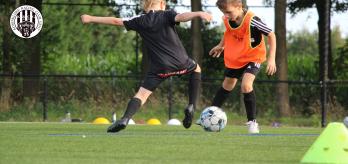
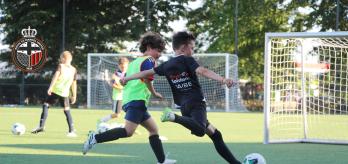

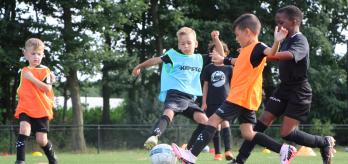

.variant64x64.jpg)

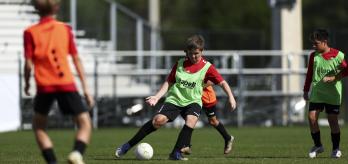
.variant348x164.jpg)
